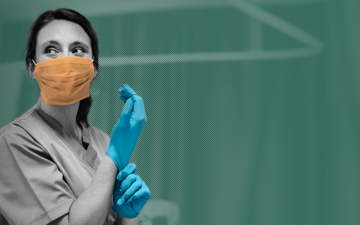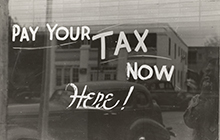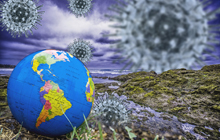Editorial: Canada should zero-rate PPE for GST/HST purposes

The COVID-19 pandemic has taught us PPE is essential and should be zero-rated, says Cyndee Todgham Cherniak of LexSage
 |
Cyndee Todgham Cherniak is the founding lawyer of LexSage. |
TORONTO – Personal Protective Equipment (known as "PPE") is taxable in Canada. Face masks, surgical masks, plastic face shields, protective eyewear used in hospitals, protective gowns and garments used in hospitals, surgical and disposable gloves, rubbing alcohol, disinfectant wipes, hand sanitizer, etc. are all subject to Canada's federally imposed sales tax (goods and services tax ("GST") and harmonized sales tax ("HST")). This means that if PPE is purchased by a hospital, a health care provider, a police department, a nursing home or retirement home operator, a grocery store, etc. in Nova Scotia, New Brunswick, Prince Edwards Island or Newfoundland/Labrador, 15% GST/HST tax will be imposed. If PPE is purchased in Ontario, 13% GST/HST will be imposed. In Quebec, GST and Quebec Sales Tax ("QST") will be imposed. Please refer to Canadas Sales Tax Rates (as at May 1, 2019) for information about sales tax rates.
In the past, hospitals and some other entities have been able to claim partial rebates to recover some of the GST/HST paid on PPE. The COVID-19 pandemic has taught us is that PPE should not be subject to GST/HST. PPE is essential for many groups in Canada, like food, and should be zero-rated. Hospitals and front-line health care workers should not have an unrecoverable GST/HST cost associated with purchasing PPE. Further, senior citizens and the most vulnerable in society, including immuno-compromised persons, should not have to pay unrecoverable GST/HST on PPE. Quite frankly, everyone should not have to pay GST/HST and other sales taxes on PPE.
PPE should be zero-rated. "Zero-rated" means that GST/HST would be charged at a rate of 0%. Zero-rated status is better than exempt status because if PPE is merely exempt, Canadian manufacturers of PPE would not be entitled to claim input tax credits (the mechanism to recover GST/HST paid on purchases and imports) with respect to the materials and other inputs used to make the PPE. If Canada wants to have a thriving PPE manufacturing sector (which we do to protect our supply chains in future health crises), Canadian-based PPE manufacturers should not have to allocate their input tax credits for rent, factory overhead (e.g., energy) and office overhead (all general selling and administrative costs). Administratively, there is a lot of work undertaken by those in the exempt sectors. If PPE is zero-rated, the Canadian manufactures would be able to sell PPE to the front lines and consumers at a lower manufacturing and materials costs.
As a general rule, all property (including goods) and services supplied in Canada are subject to GST. If the property or service is supplied in an HST province (Ontario, Quebec, Nova Scotia, New Brunswick, Prince Edward Island, Newfoundland/Labrador), the property or service is also subject to HST at the appropriate rate. Only property and services specifically listed in Schedule VI to the Excise Tax Act (the Zero-Rated Schedule) are zero-rated. Part II of Schedule VI to the Excise Tax Act relates to medical devices and is the most appropriate schedule to review. We know by quickly reviewing Part II of Schedule VI to the Excise Tax Act that PPE is not currently listed. As a result, since there are no specific listings for PPE, it is taxable (unless they are exempt).
It is important to note that ventilators and respiratory assistive devices are listed. Eyeglasses and eyewear prescribed by a medical practitioner to a patient are zero-rated, but not eyewear and goggles to protect doctors, nursed and health care providers. Blood sugar testing kits are zero-rated, but COVID-19 testing kits are not zero-rated. Hand sanitizer, disinfectant and disinfectant wipes are not considered to be a medical device and are not basic groceries. Part I of Schedule VI to the Excise Tax Act relates to prescription drugs and biologicals and PPE does not fit in this group.
Exemptions (GST and HST is not charged on these items, but the providers cannot claim input tax credits) are set out in Schedule V to the Excise Tax Act. The relevant part of Schedule V to the Excise Tax Act is Part II, which relates to health care services. A careful review of the exemptions in Part II of Schedule V to the Excise Tax Act shows that PPE is not included in the Schedule. Also, a careful review raises issues as to whether COVID-19 testing that is not performed by a medical practitioner would be exempt. For example, unless the Government of Canada makes changes to Part II of Schedule V to the Excise Tax Act, COVID-19 testing performed by persons who are not medical practitioners (this term is defined to only include doctors and dentists licensed to practice medicine in a province) will be taxable unless covered by a provincial health care plan. There are many healthcare type services that are being rendered during the COVID-19 crisis that are not covered by Part II of Schedule V of the Excise Tax Act. Many services provided to retirement homes and shelters (to protect vulnerable persons during the COVID-19 pandemic) also are not covered in this Schedule. This means that in the future there many be a number of significant Canada Revenue Agency auditors raising large assessments if GST/HST is not charged, collected and remitted. As a general rule, you must clearly fit within an exemption to be entitled to use it. We will write another blog article of this subject.
This is the appropriate time for the Department of Finance to amend the Excise Tax Act to zero-rate all forms of PPE. PPE and many other goods used in hospitals and the health care sector should never have been subject to GST/HST. Major changes are necessary to Part II of Schedule V to the Excise Tax Act to expand what is considered to be an exempt health care service. Times have changed and who can provide exempt health care must change fundamentally. These changes need to be made without years of delay drafting the language of the exemptions and zero-rating provisions.
Cyndee Todgham Cherniak is the founding lawyer of LexSage, a boutique international trade law and sales tax firm in Toronto. Image by rawpixel.com.








(0) Comments